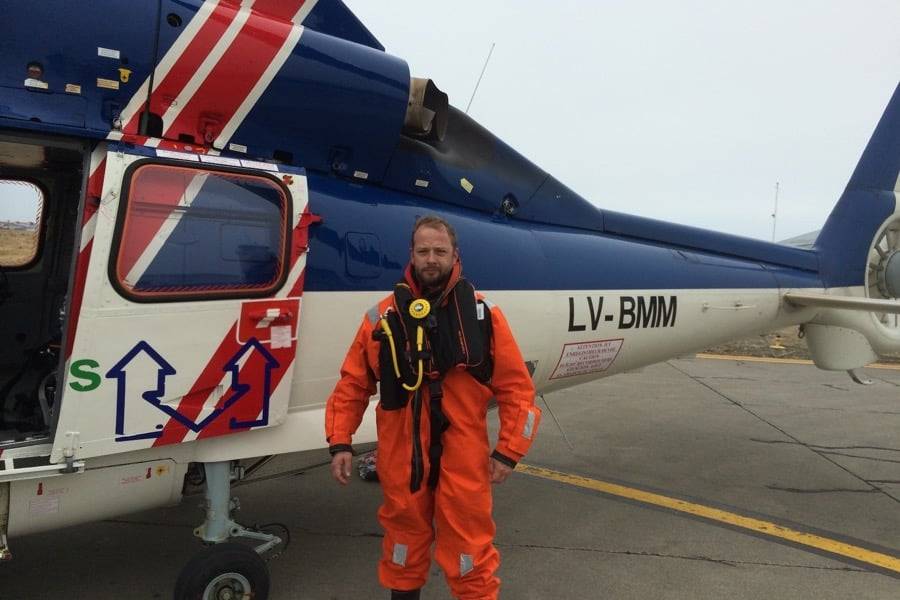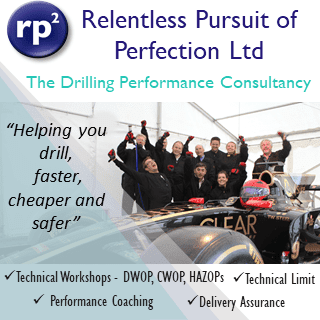Oil and Gas Titan Interview #2
INTRO: As drillers.com grows and evolves, we’re constantly thinking of new ideas and resources that might bring value to our readers. We’re in an industry that likes to promote from within, and rewards experience. The number of people that grow, thrive and prosper must be quite high in the oil and gas industry as compared to others.
There’s great value to be found in reading about other peoples experiences, especially the more longstanding and successful ones. Reading interviews or biographies of industry titans such as John D. Rockefeller, John Paul Getty or Jack Welch have inspired generation after generation of new industry entrants – As well as those who aren’t quite so new!
So, we’re going to post interviews from time to time. We can’t promise any scoops such as Rex Tillerson or Harold Hamm, but as you know, most oil industry titans are not famous outside of the industry.
For those who missed our first interview, here’s a link: https://drillers.com/dave-taylor-interview/
For our second interview, please welcome Eric Roth who is one of our drillers.com experts.
Here’s our second titan interview, with Eric Roth…
1) Unlike many industry veterans, you’ve experience in other industries too. Please provide a brief overview of life before the oil industry?
Wow, where to start, ha!… There’s a lot to cover, but I’ll try to give you a condensed version… I grew up in the southern U.S., a place with a distinctive culture in which the majority of people never venture far from their birthplace, and even fewer travel or live outside of North America.
From an early age, I knew that I wanted to travel and see the world. Even before graduating from high school, I was thinking about how I could achieve this. Although I was a cerebral bookworm (geek at heart), and wanted to go to university, I knew I was not ready to do so at the time.
The military has always been one of the best ways to see the world while building significant life skills. With the thought of getting some money for uni along the way, I decided to go all-in and opted for the most challenging military service I could – the U.S. Marines!
After surviving a grueling boot camp…
(As a side note, I was one of the first recruits to go through the infamous “Crucible” course. Whilst suffering a broken bone in my foot in middle of training, still finished it after a healing period.)
… Was chosen for the elite Embassy duty, where I served out the rest of my time at various country/continent posts all over the world, in the diplomatic corps.
Thereafter I worked in the private sector in Hollywood, doing high level executive protection and threat assessment for celebrities. (Yes, A-listers, high profile CEO’s, best-selling authors, billionaires, etc). After a while I decided to create more of a balance in my own life and left that industry.
2) When people move from one industry to another, they often bring valuable experience that can be applied. Can you think of an insight that you have bought with you and have been able to impart?
There are numerous. The beauty of coming in from different industries, is that we can bring the best attributes with us, and leave the others behind. Some of the most valuable are agility/adaptability, resilience, respect, and integrity.
Following on from question number one, I did not get into the Energy Industry until after the military, after having traveled, lived, and worked globally – this has culminated in 60 plus countries so far, and on every continent except Antarctica.
My point being that this kind of real world education cannot be bought, and I feel blessed and grateful that, through both the military and thereafter since in the O&G/Energy, I’ve been able to live a life more fulfilling life than most twice my age, even at this stage.
3) You’re currently based in the UAE, but have previously traveled the world, helping teams, rigs and companies work better together. Is there some tweak or improvement that you identify repeatedly, something that might help our readers now?
Beyond the technical skills needed in every chosen specialty… (Whether drilling, completions, well intervention, fluids & cementing, well control, geology, etc.)… Something we see over and over again within both our own industry and across other industries, with regard to performance improvement, is the ongoing need for better communication.
But what does better communication, more efficient communication really mean? It means at its core, 360 degree leadership, up, down, and across any organization, and regular interface with our field supervisors and field line management.
It means we need to actually listen to what our folks at the wellsite, rigs, and platforms are saying to us, as they are often in the best positions to gain insight and give feedback on the optimal solutions to complex problems…
Why? Not necessarily because they always have the most experience (although that is often the case), but because they sometimes have the most complete information related to those problems/issues).
4) Aside from the differences, people are people, and achieving synergy must have common elements. What are the most important elements to create a team that is more than the sum of its parts?
Lets first look at the simplified (Cambridge) definition of Synergy:
“The combined power [energy] of a group of things when they are working together that is greater than the total power [or energy] achieved by each working separately”.
A common misconception when people ask if two entities or groups have “synergy” is that they must have all similar elements to work together. However, teams, groups, and entities with slightly different elements, but those which still interact and work together can also achieve great synergy. When their goals are aligned and the differences they do have complement and balance each other out where required.
I’ll give you two relevant examples:
- a) An Integrated Project Management Team, each with a particular specialty/focus, who are all working towards the goal of achieving a wells project on budget, on time, and within the agreed quality standards.
- b) A Drilling & Wells Rig Start Team, composed of 3 or 4 persons, each responsible for a particular domain (Drilling & Completions Operations / Engineering / Quality & HSE), who work together throughout the start up and commissioning phase to get the project operating smoothly as per the proposed program.
5) Most executives and leaders who have held different key positions in various organizations go through a similar evolution. They want success which can mean career, financial or involve peer recognition. Then they want a list of accomplishments that give them satisfaction. At some point, the finite nature of life comes into awareness and they realize that a legacy might be important. What are your thoughts on this?
Since you’re aware of my values, it’ll be no surprise that this is one of my favorite questions 🙂 … It does seem that it’s human nature for people to go through life chasing the worldly success parameters, and only later in life start to realize the important stuff and begin focusing on a more meaningful legacy.
As we grow, paradoxically, both more connected (through technology) and less connected (on a personal level). At the same time, my belief is that this should be more important to us, particularly as we age and learn more about the universe around us.
5b) Have you experienced this process personally?
Absolutely. Again, I feel fortunate and grateful that I have gone through this process earlier in life than a lot of people. Because of personal experiences around the globe and exposure to so many cultures and views of life. Experiences which never would have occurred staying only in my own country.
I constantly think about (and encourage my children to think about) how we can give more back to the world while we’re here, and do so in a meaningful way that actually can make a difference in some small way.
5c) What kind of legacy do you want to leave behind?
As we get older and our children grow, we think about this more often – leaving a legacy of generosity and value provided to our world…
In my mind, there are two kinds of legacy – Professional and Personal, which often intertwine with one another in many ways, depending on what you contribute to society. I blend the two by using my professional services as a vehicle to deliver benefits to others which they may not expect, such as my annual Drilling for Drinking Water charity campaigns, which help a highly reputable charity to drill water wells in underdeveloped countries, in order to supply clean drinking water to the impoverished communities.
Sure, we need to take care of our own basic needs first, and we all want to live a decent style of life and to give the best we can to our families; however, for some of us, money is not our primary driver. For me, what you see is what you get, and as I always say, I will never sacrifice my personal integrity for the sake of a quick dollar or gain. To sum it up, I live by my (and my company – SenergyConsultants.com) values: Integrity / Excellence / Generosity / Collaboration / Synergy
6) What was the highlight of your career? Or are you a type A, driven person who is still striving towards it? Or both?
Well, most people don’t know this about me but, as alluded to in the answer to the first question, I’ve worked for and with some of the worlds most interesting and well known people. I voluntarily decided to step away from that lifestyle, but one advantage of having done that is it opens your eyes to the ways the world really works (and doesn’t work), and ultimately teaches you that people are people at the end of the day.
We all (well, most of us!) put on our pants one leg at a time, have our own issues and idiosyncrasies, and at the same time we can learn a lot from each other.
7) We’ve known each other during the current downturn, sometimes our future path has seemed unclear. What advice can you impart to help anyone reading this. On a personal level, how do we survive industry crashes?
Indeed, and it’s been good knowing you my friend. Most people who are in this industry and who have been through one or more of the downturns, have probably doubted their career paths at some point. I’ve written an article previously urging people to stay and “dig their boots in”, but the reality is that it is a personal decision and there’s no correct answer.
If you do stay in the industry, one certainly must be resilient, agile, and versatile. When times are good, keep enough savings in the bank to be able to cover a years basic expenses. Then, in continuous improvement/agile project management speak, be prepared to pivot where and if necessary.
8) You are a master of management principles of man and machine, and of pushing the boundaries of efficiency. In your experience, how much improvement comes from changing the process flow, and how much from creating an inspired team that works well together? Which is more important?
Firstly, thanks for the flattery, but I’d say “student” not master, ha! We should always be learning and trying to figure out how to do things better. In drilling & well operations, performance experts (such as our own Dave Taylor himself) will rightly tell you we get efficiency benefits from both engineering processes, and from building team dynamics.
Like many other industries, it’s getting the correct balanced mix of hard and soft skills / elements and tweaking them to each unique project. You could have the most intelligent engineer in the industry, but if he does not work well with anyone else and has the terrible attitude towards everything, you are back to square one.
9) Where do you stand on the renewable debate? Should alternative energy be subsidized in order to give these fledgling industries a helping hand? Or do you believe in the power of unbridled capitalism and free trade?
Hmm, I’ve written about this before… In the end, I don’t think subsidizing may be necessary, as the cost to value ratio evens out, and the infrastructure expands.
We’re still a while away from being able to utilize renewable energy sources for most of our larger energy needs, (meaning we still need Drillers and Drilling!), but significant progress is being made… even as we speak – Tesla dealerships are opening around the world, and look at what they are doing in the solar arena.
It does not mean that oil & gas resources will not be required – far from it – but renewables (wind, solar, hydro, etc) will become increasingly important alongside hydrocarbons.
I believe it will continue to happen gradually, and if benefits can been seen by both business/industry and the earth at large, then I support it.
10) Do you see much more room for cost savings and efficiency in the oil and gas industry? Some experts suggest that technological advances have only produced around 10% of the recent cost cutting, the rest has been from oilfield services firms cutting costs to the bone to stay in business?
There are a few integrated oil & gas companies (both large and small) who actually had the foresight to start economic efficiency programs across their organizations just before the oil price started to go south several years ago. The results were not evident immediately but are coming to light now.
Certain technologies are emerging which will most likely prove to add another 10 to 20 percent savings once we figure out how to keep the same productivity with the new technology and step changes. I’m no expert in economic macro or micro analysis, but look up our friend Joseph Triepke over at InfillThinking.com, who is one of our industry leaders in this kind of analysis.
(Would you like to be featured in our Oil and Gas titan Interviews? Get in touch!)





Good article Jason. Eric has had an interesting career!
Excellent Eric! So pleased to be working together to make a difference!
Excellent article. Always good to get to know people better and where they came from
Thanks for your kind words gents! Pleasure is mine as well 😉 ER
Not bad for a country boy! Well done Eric…
It’s very encouraging to see such a great response to our second titan interview. It seems that people appreciate the human touch. We’ll keep these articles coming. Thanks Eric!
Great post, Jason and Eric. Eric has some terrific perspective especially around project management and operating in the international O&G landscape. It’s nice to get to know the person behind the expertise a bit better! Congrats on a thoughtful interview.